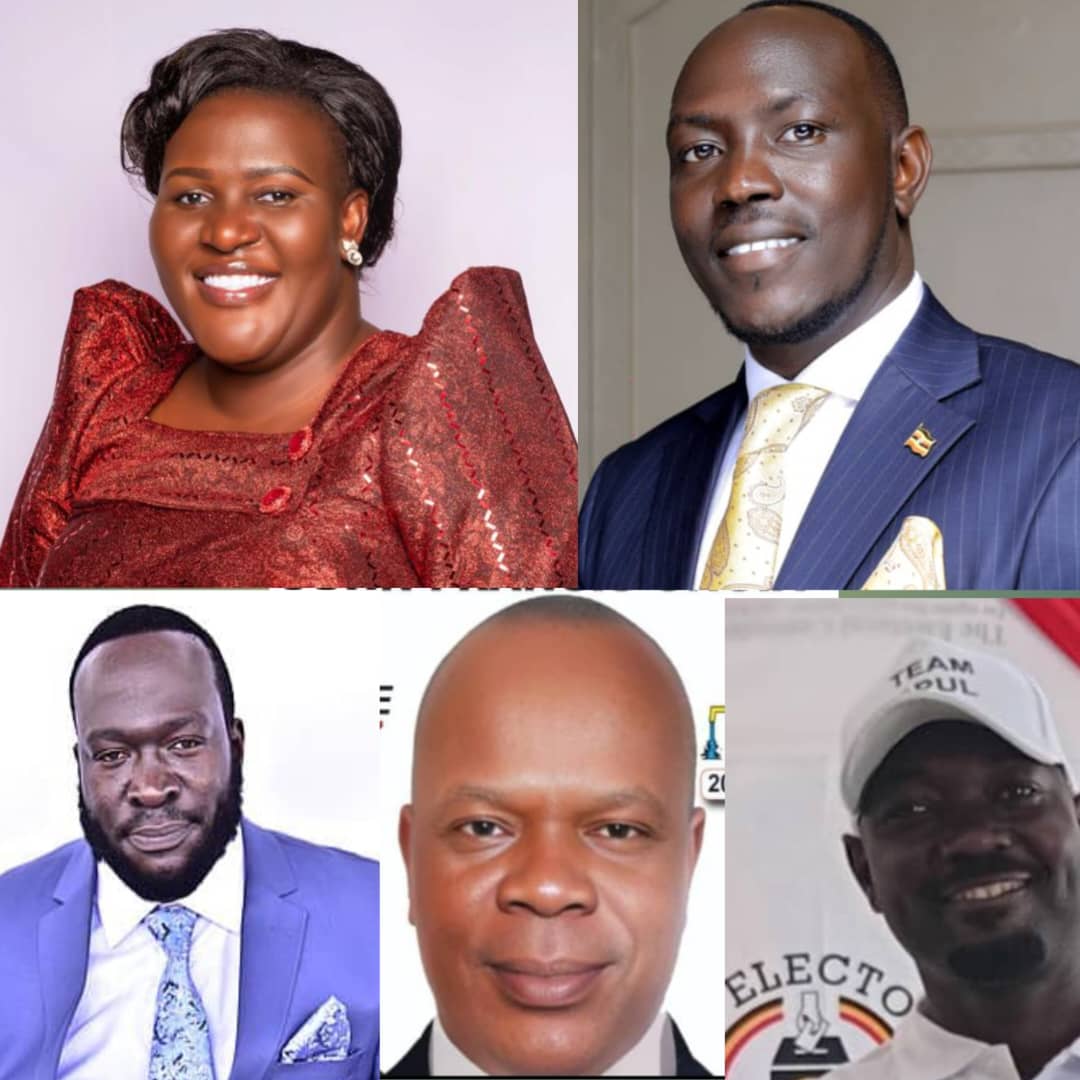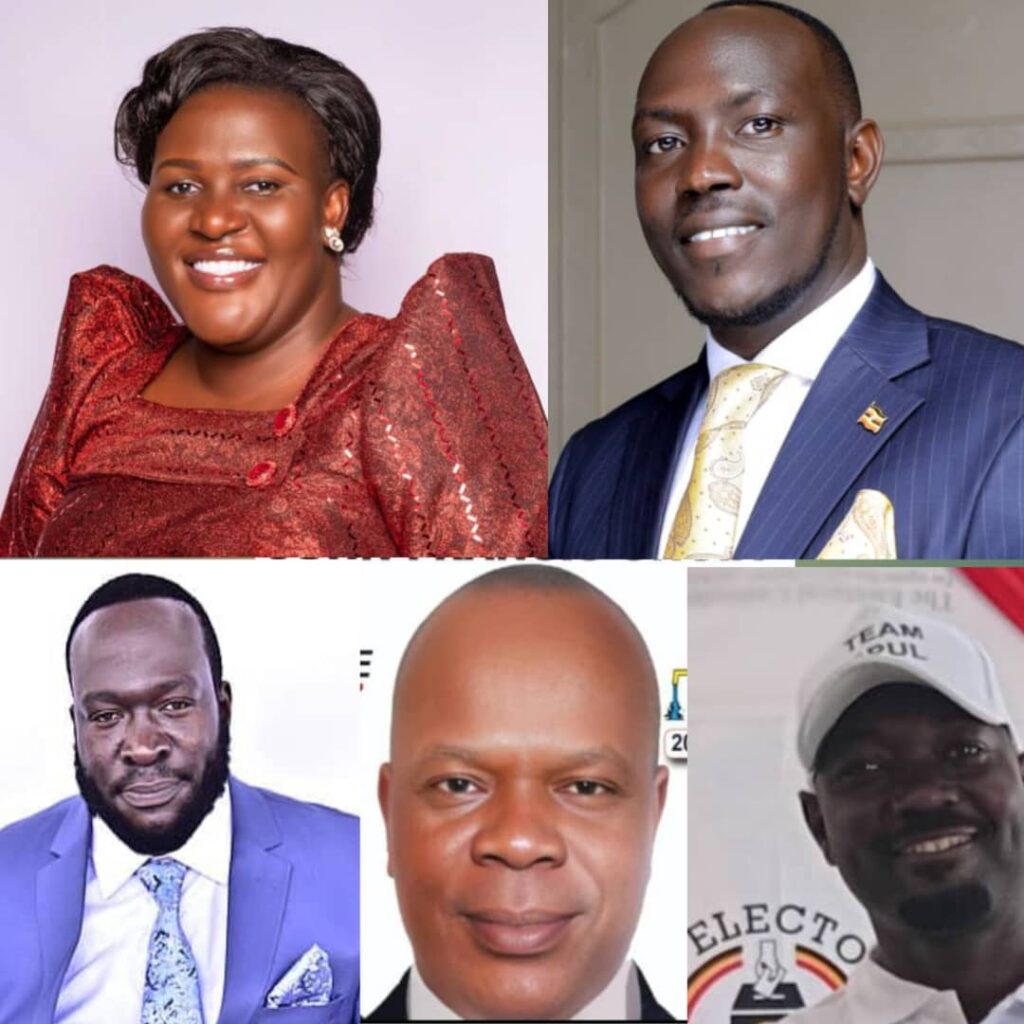
 Hot FM
Hot FM

 Hot FM
Hot FM
19 November 2025, 3:07 pm

By Sarah Ejang
As Uganda approaches the 2026 general elections, the political arena is witnessing a transformative shift, particularly with the emergence of female candidates contesting directly elected positions.
This development has stirred mixed reactions among various stakeholders.
While some criticize women for challenging male-dominated spaces—especially in the culturally conservative Northern Uganda—others advocate for gender equality in political representation.
For instance, in the Amolatar district, Ms. Angwech Collines has emerged to contest against four men: Carols Opul, Col. John Francis Ongia, Junior Okot Betek Moses, and Felix Adupa Ongwech, for the directly elected position of Member of Parliament for Kioga County, a role that many believed was exclusively for men.
However, this position does not guarantee that one must be female or male to contest for it.
Political activist Mr. Jolly Joe Opio stands firmly against the notion that women should remain confined to support roles or limited positions.
He highlights the Parliamentary Election Law Act of 2005, which does not prohibit women from competing for directly elected positions, including Member of Parliament.
Mr. Opio points out that competent women like Hon. Colline Angwech, who is running for Kioga County MP, and Hon. Dr. Agness Atim Apea have already made significant contributions to their communities, showcasing the capability of female leaders in driving development in areas such as Amolatar.
“Women do not abandon their communities,” he asserts, emphasizing the importance of electing those who demonstrate their commitment and capability to serve.
He cites successful female leaders, including Hon. Anitah Among, the Speaker of Parliament, Vice president Rt.Major Jessca Alupu, prime minister Hon.Robina Nabanja , the late Cecillia Atim Ogwang former woman member of parliament Dokolo district, Minister of gender and labor Hon.Betty Amongi as evidence that women can achieve remarkable results for their constituents.
However, Ms. Silvia Alaba, a businesswoman and voter in Kioga County, argues that the lack of education among voters hinders their understanding of the importance of electing women to directly contested positions.
She stresses the need for election sensitization and educational initiatives to empower voters to make informed decisions.
Having previously served as a worker representative at the district, Ms. Alaba passionately calls for more support for women aspiring to enter politics, encouraging a paradigm shift away from the outdated belief that such positions are inherently male domains.
By choosing to enter this political arena, Ms. Collines not only highlights her capabilities and commitment to serving her constituents but also serves as an inspiration for other women in the district and beyond. Her participation in this election challenges the long-standing perception that political leadership is a realm reserved for men, thus paving the way for greater inclusivity and diversity in governance.
Ms. Angwech Colline, as the sole female candidate for the Member of Parliament position in Kyoga constituency, has taken it upon herself to educate her community about women’s constitutional rights to run for mainstream electoral positions. Despite facing misinformation and opposition claims that women can only compete against each other, Ms. Angwech robustly defends her eligibility, stating, “This is a complete falsehood and a disgrace.”
In an exclusive interview, Amolatar District’s Returning Officer, Ms. Irene Hope Nakiru, affirms that the Electoral Commission supports women’s representation, stipulating that at least one-third of representatives should be women. “If a woman possesses the determination and confidence to compete for a large electoral area, that is acceptable. There are no restrictions,” she reiterates, challenging societal preconceptions about gender roles in politics.
The legal framework governing Uganda’s elections, outlined in the 1995 Constitution, endorses women’s participation in the political sphere.
Article 78 emphasizes the inclusion of both directly elected MPs and women representatives, ensuring a dual approach to representation that enhances women’s opportunities for parliamentary service while guaranteeing their voices in legislative matters.
Despite the challenges, the growing presence of women in Ugandan politics signifies a breaking of barriers and an assertion of rights that have long been stifled by patriarchal norms.
The collective efforts of activists like Mr. Opio, business leaders like Ms. Atim, and candidates like Ms. Angwech highlight a crucial moment in Uganda’s political history—one where women refuse to remain marginalized and demand their rightful place in governance.
As the elections draw closer, it is imperative for all stakeholders—voters, political parties, and civil society—to foster an environment where female candidates are supported and empowered.
By doing so, Uganda can pave the way for a more inclusive political landscape, one that recognizes and celebrates the invaluable contributions of women leaders in shaping the future of their communities and the nation at large.
This story was produced with financial support from the Finish Foundation for media and development VIKES in partnership with the Uganda Media Women’s Association (UWMA)